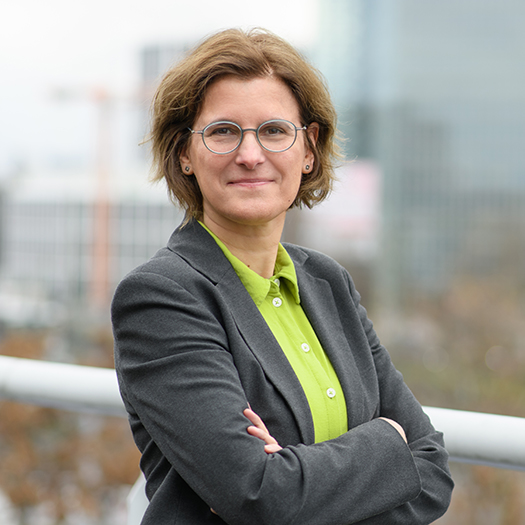Quantum Technologies: European Cooperation Required
ResearchEFI Report 2025 Handed Over to Federal Government
The Commission of Experts for Research and Innovation (EFI) presented its latest annual report to the German federal government today. The report emphasises that research and innovation policy must become more effective in the new legislative period. A central topic is the potential of new quantum technologies.
“The United Nations have proclaimed 2025 as the International Year of Quantum Science and Technology,” says Professor Irene Bertschek, head of ZEW’s Research Unit “Digital Economy” and deputy chair of the commission. “This is an important sign and there are good reasons for it.”
In addition to an exponential increase in computing power from quantum computers, the new technologies promise highly secure communication, important advances in autonomous navigation and breakthroughs in medical diagnostics. “Quantum technologies are therefore considered key technologies of the future,” adds Bertschek
Quantum technologies are a unique opportunity for Germany
Political backing and planning security are needed, however, to be able to drive forward pioneering quantum projects. “Many applications of quantum technologies, such as universally applicable quantum computers, are still a long way from being ready for the market. This gives Germany the opportunity to help shape further developments and significantly advance quantum technologies. Thanks to excellent basic research and a strong tradition in quantum physics, Germany has an excellent starting position for this,” adds Bertschek.
A representative ZEW survey of around 1,200 companies, which was commissioned by the EFI, also confirms that many of the new quantum technologies are still at an early stage of development. Only around four per cent of companies in the information economy and three per cent in the manufacturing sector say that they have dealt intensively with quantum technologies or are currently working on or with them. The share of companies planning to invest in this area over the next five years is similarly low. In response to a further question to company representatives who are already familiar with quantum technologies, around six per cent in the information economy and four per cent in the manufacturing sector stated that they are currently planning to invest in quantum technologies or will do so in the next five years.
National and European efforts
“Although many quantum technologies are still in their infancy, we need to set the right strategic course today. This means, above all, coordinated European efforts and a reliable research and innovation policy from the new German government,” says Bertschek. According to the EFI report, a national quantum strategy should therefore create a coherent framework for the further development of quantum technologies. This includes, for example, long-term and adaptable technology roadmaps, the targeted expansion of regional innovation clusters with clear research priorities and easy access to state-of-the-art research infrastructure.
EFI Report 2025
The Commission of Experts for Research and Innovation (EFI) has been engaged in advising the German government on scientific policy since 2008. The commission publishes annual reports on Germany’s research, innovation and technological performance and develops proposals for the national research and innovation policy. Among other things, this year's report is intended to provide impetus for the upcoming coalition negotiations. Professor Irene Bertschek of ZEW has been a member of the EFI since 2019 and deputy chair since 2022.




